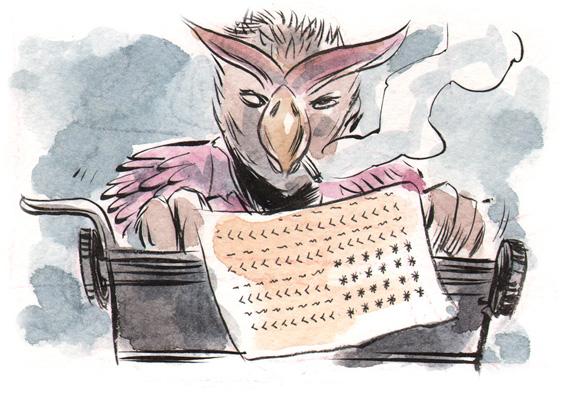Ever since David Hume noted that, while reading Edward Gibbon’s The History of the Rise and Fall of the Roman Empire, “One is also plagued with his Notes, according to the present Method of printing the Book†and suggested that they “only to be printed at the Margin or the Bottom of the Page,†footnotes have been the hallmark of academia. For centuries, then, the footnote existed as a blunt instrument, wielded by pedants and populists alike, primarily for the transmission of information, but occasionally to antagonize opponents with arch rhetorical asides. But it would take a couple hundred years until writers again took up the footnote for other, more artful purposes, discovering in this tiny technique emotional and intellectual depth far beyond the realm of the merely experimental. Â
Tag Archives: writing
Draftback: “Watch Me Write This Article”
In November, [James] Somers, a developer for Genius, released an app calledDraftback.1 It’s a fascinating experiment that treats writing like data. After years of trying to build a program, Somers realized that Google Docs was already saving every keystroke we enter. So he hacked Google Docs to play documents back to their authors, materializing on the screen with every stutter-step inherent to the writing process. In its latest form, Draftback is a Google Chrome extension that can reach deep into the archives of any Google Doc you have editing rights to, make sense of all that writing and rewriting you innocuously poured into it, and beam it right back to you, backspaces and all. It doesn’t matter if your document was created before or after you installed Draftback — the keystrokes have been buried the whole time. Draftback can unearth any fossil.
George Orwell on writing: Six little rules…
George Orwell on writing, from Politics and the English Language. Â Good rules to write by for everyone, including Waubonsee students:
(i) Never use a metaphor, simile, or other figure of speech which you are used to seeing in print.
(ii) Never use a long word where a short one will do.
(iii) If it is possible to cut a word out, always cut it out.
(iv) Never use the passive where you can use the active.
(v) Never use a foreign phrase, a scientific word, or a jargon word if you can think of an everyday English equivalent.
(vi) Break any of these rules sooner than say anything outright barbarous.
George Orwell on writing: Johnson: Those six little rules | The Economist.
Does Copyright Matter?
Raymond Carver signing books, New York City, 1988
Does an author have the right to prevent people from copying their book(s) for free? Should authors have this right? Does it matter?
Does Copyright Matter? by Tim Parks | NYRblog | The New York Review of Books.
The Great American Novel: We’ve been looking for one since the 1860s. Why?
The concept of the GAN (Great American Novel) seems to have been born in the late 1860s. In an 1868 TheNation essay, Civil War veteran John William DeForest—himself an aspiring GAN-ist—described the GAN as “the picture of the ordinary emotions and manners of American existence,†a work that painted “the American soul.â€
The Great American Novel: Fitzgerald, Wharton, Morrison on the search. – Slate Magazine.



